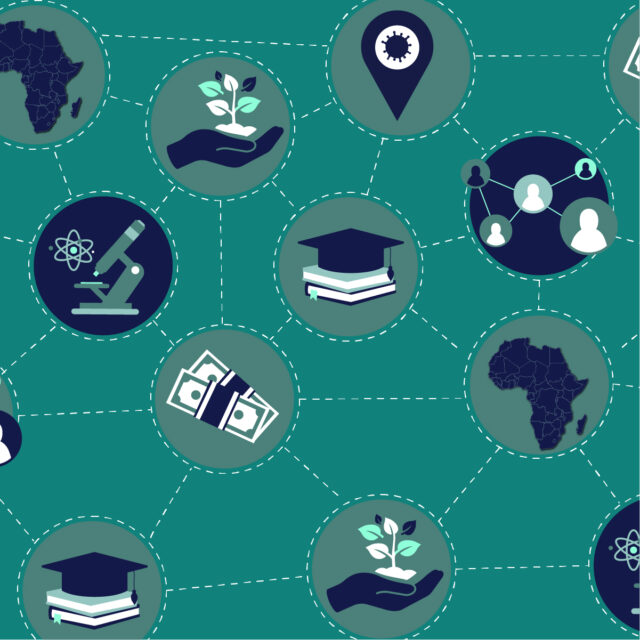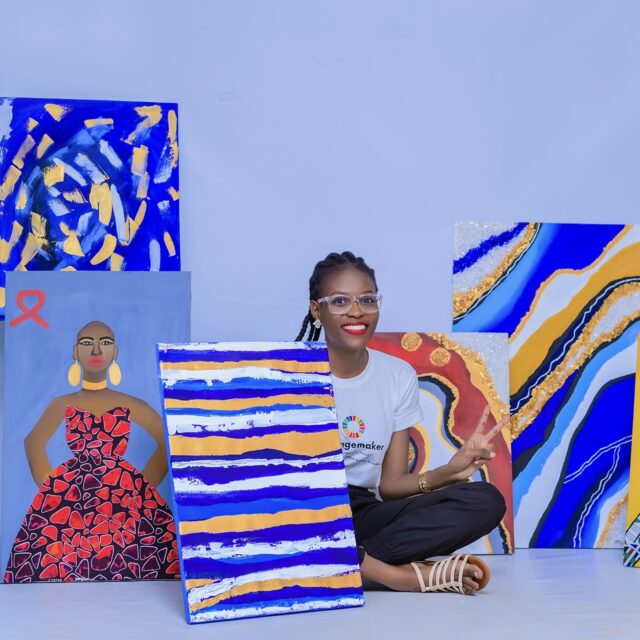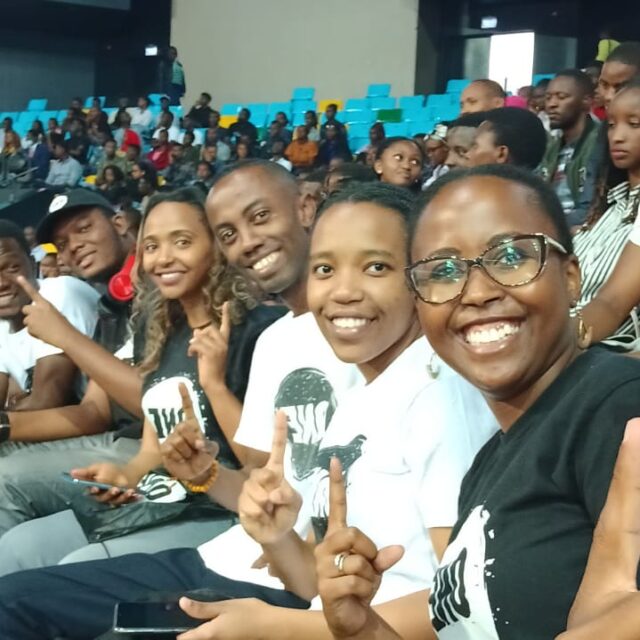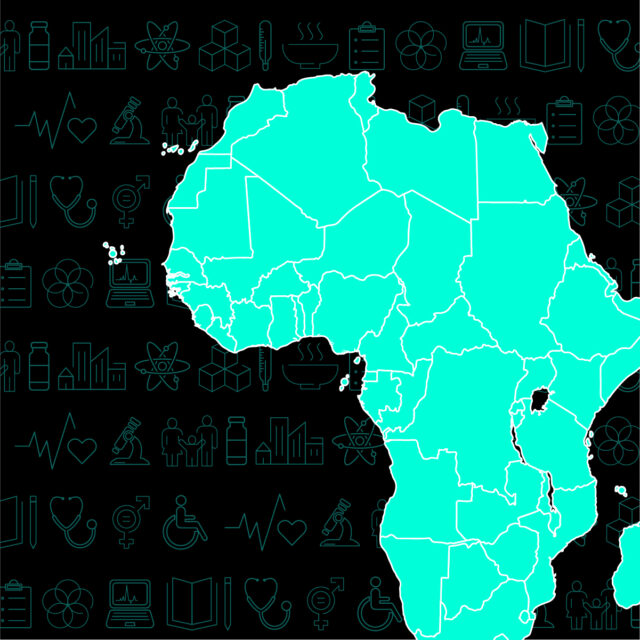Top news
Astoundingly unequal: Vaccine equity will dominate debates at this week’s Global Health Summit in Rome. Convened by G20 Chair Mario Draghi and European Commission President Ursula von der Leyen, the EU is expected to make a major announcement on supporting African manufacturing of vaccines. ONE’s analysis of the issue has been featured on BBC, CNN, CNBC, and many other outlets. We’ve consolidated it all in our new deep dive: The astoundingly unequal vaccine rollout.
Think bigger: Leaders gathering in Rome should agree to a plan to reach global herd immunity. That requires urgent dose sharing and going big on funding, while making medium- and long- term investments in sharing IP and scaling up manufacturing. COVAX only plans to reach 20% of the population in low-income countries, and while the scheme was expected to deliver 170 million doses by May 2021, it has only managed 65 million.
Gayle force Smith: Ahead of the summit, US President Joe Biden announced the US would share 80 million surplus doses. Biden name checked ONE’s CEO Gayle Smith, who is currently seconded to USG to coordinate the US global COVID-19 response. Gayle has called for a grand plan for vaccine dose sharing as bold and ambitious as the Marshall Plan.
‘Ever Given’ 2?: The world’s largest vaccine producer, the Indian Serum Institute, has said it likely won’t resume supply until the end of 2021, a severe blow to COVAX, which Africa is relying on for access to the vaccine. India is also a major supplier of staples such as wheat and rice to African countries — but so far prices have remained stable, partly because of stockpiling. But the biggest risk lies in disruptions to India’s domestic supply chains and maritime shipping delays. Plus, fears of the “Indian variant” spreading remain, with cases detected in South Africa, Morocco, Uganda, the DRC, Nigeria, Algeria, and Kenya.
WHO will share?: WHO head Dr. Tedros Adhanom Ghebreyesus called on wealthier nations to delay vaccinating children and teenagers in their countries, urging them to instead supply vaccines to the global fair-access scheme COVAX. “In low- and lower-middle-income countries, COVID-19 vaccine supply has not been enough to even immunise healthcare workers,” warned the WHO chief.
South Africa ramping up: South Africa aims to inoculate 5 million citizens over the age of 60 by the end of June. Minister of Health Zweli Mkhize cautioned that the rollout is dependent on anticipated deliveries of vaccines by the end of June. The country is awaiting 4.5 million Pfizer doses and 2 million Johnson & Johnson doses.
Tanzania’s back: Tanzania’s COVID taskforce will start providing infection updates, proper interventions, and steps for Tanzania to vaccinate its citizens. Tanzania’s former COVID-denying President John Magufuli, who most likely died from the disease, had banned data disclosure. His successor, President Samia Suluhu Hassan, is bringing much-needed leadership to the country.
Full Monti: States that invest too little in public health in the future could risk having their credit ratings cut. So said Mario Monti, chair of a WHO panel set up to investigate risks to financial stability from healthcare failures. IMF Chief Economist Gita Gopinath is expected to make the case for the IMF to finance health because of its impact on macroeconomic stability.
Patent problem: Following Biden’s support for a waiver on COVID-related intellectual property, the EU is digging in its heels. Commission Vice President Margrethe Vestager told Les Echos “Patents are not the problem.” Former WTO Chief Pascal Lamy said “The number one issue is how to avoid a looming vaccine North-South apartheid” ahead of a meeting on the issue with his successor Ngozi Okonjo-Iweala at the Paris Peace Forum.
Delayed disclosure: The World Bank’s Global COVID-19 Response Program to support vaccine financing has, until now, been something of a black box. No longer! The bank has launched a new portal showing it has supported 22 (including seven African) countries to the tune of $2.4 billion.
Frozen: The European Medicines Agency revised its guidelines on transport of BioNTech and Pfizer doses. They can now be stored in a fridge (unopened) for a month rather than five days.
Promesses d’argent: French President Emmanuel Macron hosted the #AfricaFinanceSummit. We saw the first commitment from rich countries to on-lend their SDRs (G7 countries will receive $283 billion in SDRs) through the IMF’s Poverty Reduction and Growth Trust, while also exploring other options for their use. But no timeline or target. Ahead of the summit, Sudan cleared its IMF arrears with a $1.5 billion bridging loan from France, helping clear the way for comprehensive debt relief. Here’s ONE’s Interim France Director Mae Kurkjian on what needs to happen next.
Janet Yellen!: US Treasury Secretary Janet Yellen has supported extending the G20’s Common Framework on debt to lower-middle-income countries, something ONE has been calling for since last year. In February, she unlocked crucial progress on the creation of $650 billion SDRs to support emerging economies in their economic recovery. Moody’s further downgraded Ethiopia on Monday, claiming the country’s application to the Common Framework has increased risks that private creditors will incur losses.
Underestimate?: The Economist estimates that COVID deaths globally could be as much as 12 million higher than official counts, due in large part to under-reporting in emerging economies. It estimates that sub-Saharan Africa is 14 times underreported.
The numbers
- 8,502: COVID cases in Africa on 19 May. This lowest rate since October 2020
- 552,090: vaccinations in Africa on 13 May: The highest number yet.
- 10.3 million: doses administered in Morocco. Nigeria ranks second in Africa having administered 1.7 million doses.
- 7%: how much the Nigerian Naira was devalued on Friday, considered by some as a step in the right direction
Other reads
- Public banks have been on the frontlines in dealing with the COVID-19 crisis, providing supportive credit, fiscal assistance, and expert advice. UNCTAD argues they have stepped in where private and multilateral organisations cannot.
- No entity aiming to influence global affairs in the decades to come can afford a passive Africa strategy, according to the Council on Foreign Relations. Geopolitical competition for influence in Africa is increasing as the continent integrates into the global economy.
- The pandemic has exacerbated inequalities in children’s access to education, according to Human Rights Watch. The pandemic has disrupted education for 90% of the world’s school-aged children, but it had the most profound impact on those without internet access.
- The pandemic gives Africa the chance to free itself from aid dependency. So said Ayoade Alakija, co-chair of the Africa Vaccine Delivery Alliance. Alakija calls on African leaders to build their own institutions to “break free from the shackles of do-gooderism and aid dependency.”



